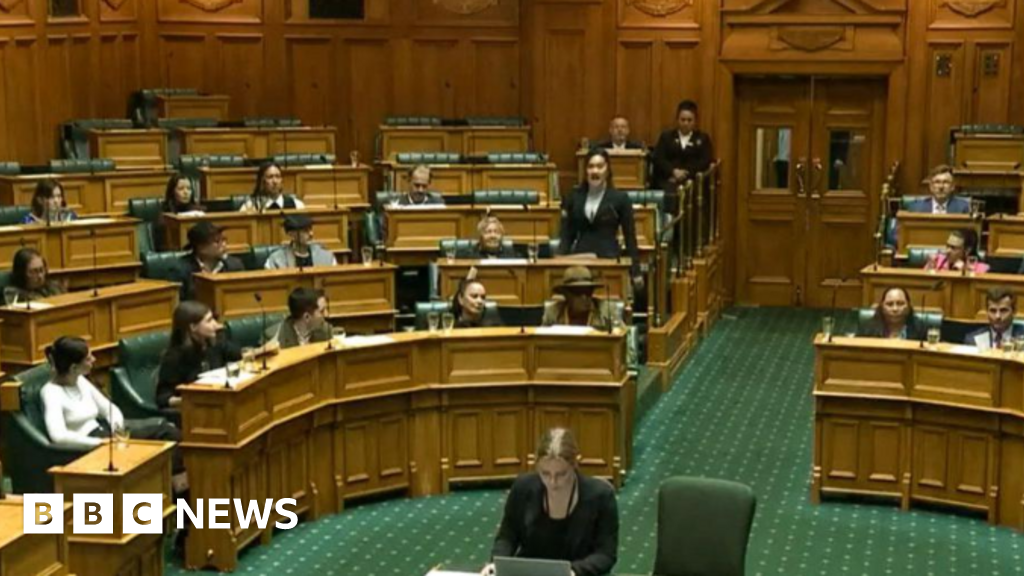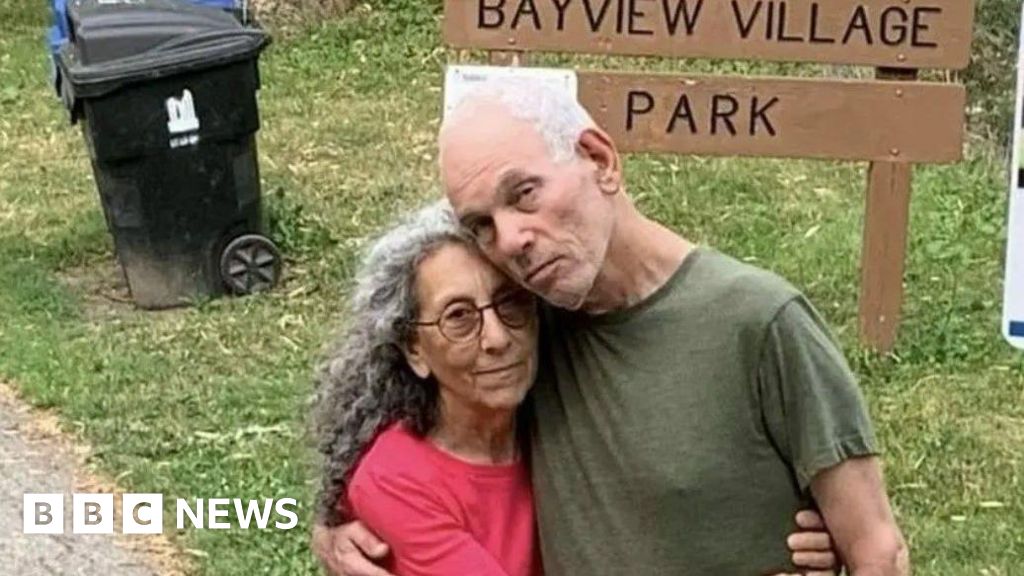ARTICLE AD BOX
image sourceBBC/SHIRAAZ MOHAMED
Inner-city Johannesburg in South Africa tends to be dangerous for outsiders, with high levels of crime, drugs and prostitution.
Photographer Shiraaz Mohamed gained the trust of some who live there to find out more about their home in one of the area's infamous and derelict buildings.
image sourceBBC/SHIRAAZ MOHAMED
It is more than 17 years since the authorities declared the San Jose building in Hillbrow unfit for human habitation.
Today the multi-storey structure stands bare - stripped of all its furnishings and fittings, including the door and window frames.
They were all converted to cash at scrapyards a long time ago.
image sourceBBC/SHIRAAZ MOHAMED
The residents who have moved in have put up blankets and fabric sheets to cover the massive holes where the windows once stood in order to keep the place warm.
Temperatures plummet during the winter, making life really tough at San Jose.
image sourceBBC/SHIRAAZ MOHAMED
On a cold winter's afternoon, the smell of faeces is strong in the dark corridors of San Jose, whose inhabitants are a mix of South Africans from neighbouring townships and rural areas, as well as migrants from across Africa.
The building's population has nearly doubled to about 200 - including women and children - because of the curfew implemented to stop the spread of coronavirus and the difficulties brought about by pandemic lockdowns.
image sourceBBC/SHIRAAZ MOHAMED
Those who used to live here before it was condemned won a court battle to be rehoused and were moved to accommodation provided by the city authorities in 2008.
The evictions from San Jose and other condemned buildings were intended to spruce up Hillbrow and neighbouring areas like Berea. But this has not happened and the structure has yet to be demolished.
image sourceBBC/SHIRAAZ MOHAMED
When squatters move in, abandoned buildings are colloquially said to have been "hijacked".
In some cases the "hijackers" are gangs who charge residents - but such is the state of disrepair at San Jose that people who come here do not pay rent to anyone.
The basement, disused elevator shaft and surrounding areas are filled with waste and sewage. There is no electricity, running water or toilets. Residents relieve themselves in dark empty spaces in the building and sometimes on the pavement.
image sourceBBC/SHIRAAZ MOHAMED
"Winter makes things very difficult for the residents," says 37-year-old Sabelo Mapempeni (pictured above).
He has been living in the building for the past four years and keeps an eye out for his fellow residents.
"We live off 'mbawulas'," Mr Mapempeni says, using the Zulu word for the metal drums used for fires. "Morning till night the fire is burning."
Although meant to provide comfort, mbawulas bring health risks from the smoke as wood, leather, plastic and whatever else that can be scavenged is used as fuel.
image sourceBBC/SHIRAAZ MOHAMED
"It's very scary living here. People get sick and have to get taken to hospital," Mr Mapempeni says.
Two people died from the cold in July, at the height of the southern hemisphere's winter, he says.
"You feel like your heart was ripped out by a lion," he said about the discovery of their bodies. "They also had dreams for a better life but they are no more.
"They were found like stones, humans that turned into stone. They had no carpet let alone a mattress to sleep on."
image sourceBBC/SHIRAAZ MOHAMED
Inside one of the rooms, Derrick Brown (above) crouches over, trying to get a fire started to make coffee for himself and a friend.
The fire serves as his stove as well as a means of staying warm.
Mr Brown has recently been released from prison for identity fraud and has nowhere to go.
image sourceBBC/SHIRAAZ MOHAMED
It is a hard fight for survival for the residents, some of whom wake up in the morning to search for food in dustbins.
Others go knocking on people's doors in neighbouring communities asking for food.
image sourceBBC/SHIRAAZ MOHAMED
Churches, religious organisations and charities play a vital role in sustaining them.
Here some queue for bread, tinned food and a blanket from the Muslim Association of South Africa.
image sourceBBC/SHIRAAZ MOHAMED
Mr Brown, who has been in and out of prison most of his life, says he battles with drug addiction - like many of those living in San Jose.
The resident pictured above is smoking Mandrax, a crushed sedative which is mixed with marijuana. It is smoked through the neck of a broken bottle.
image sourceBBC/SHIRAAZ MOHAMED
But it is not all doom and gloom. Twenty-three-year-old Moosa Sikhele (above) says he has found sanctuary at San Jose after living on the streets.
He could no longer bear the cold and a friend took him in.
A newcomer or someone unknown to the residents is likely to be robbed unless they have a contact in the building.
image sourceBBC/SHIRAAZ MOHAMED
Residents do their best to keep their rooms neat and tidy - and to stop the building deteriorating further.
In particular they do not want criminal troublemakers to move in as that could make life even more difficult.
Mr Sikhele has been living in the abandoned building for the past few months - and says he is happy to be in San Jose.
He tries to earn a living by selling cheap Chinese watches and belts but also relies heavily on people for clothing and food.
"Life is tough here. I am struggling, but I will make it."
All photographs subject to copyright

 3 years ago
147
3 years ago
147








 English (US) ·
English (US) ·